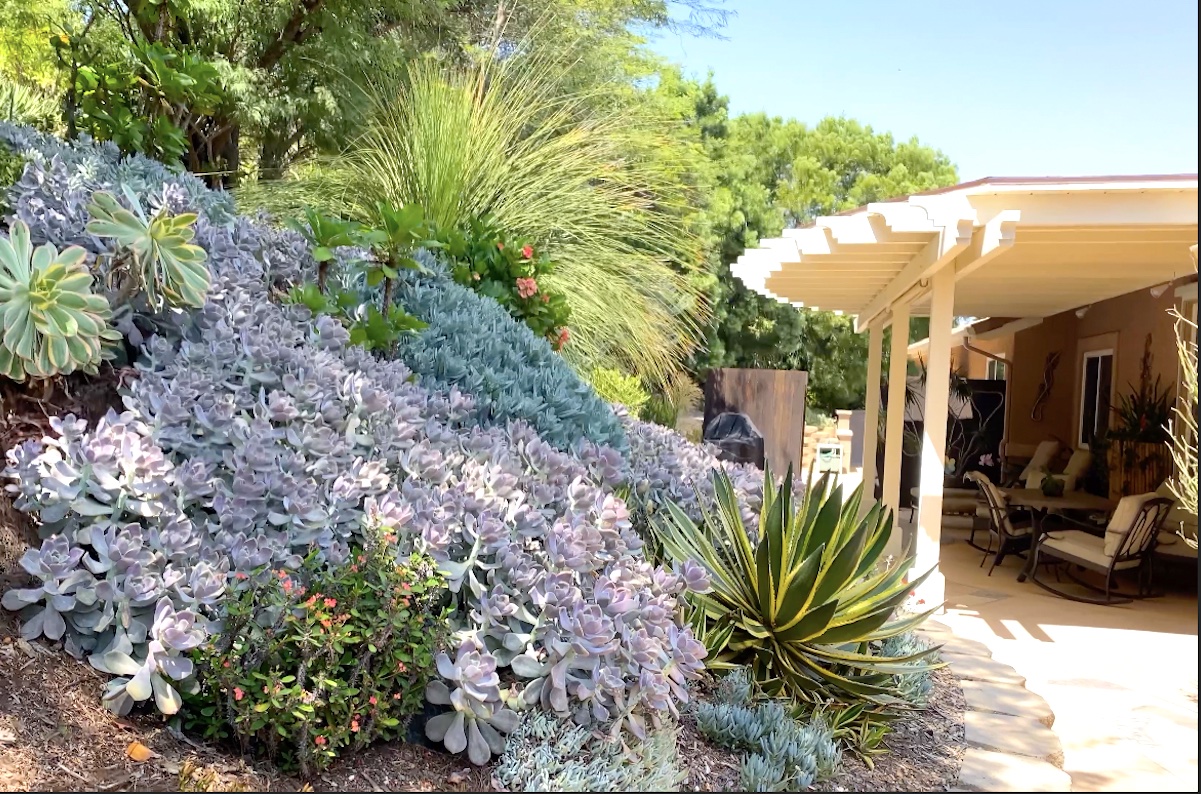
See a Landscaper’s 45-Degree Succulent Slope
When I learned that a member of my Cactus & Succulent Society chapter was a landscape contractor, I was keen to meet him and see his garden--especially when I found out his home’s for sale (time's a-wastin').
Interested? Here's the listing.
Bernie Mases and wife Linda graciously welcomed my spur-of-the-moment visit. I quickly realized it merited a YouTube video. How Bernie landscaped the back yard's steep, 45-degree upward slope is, well, brilliant.
Before
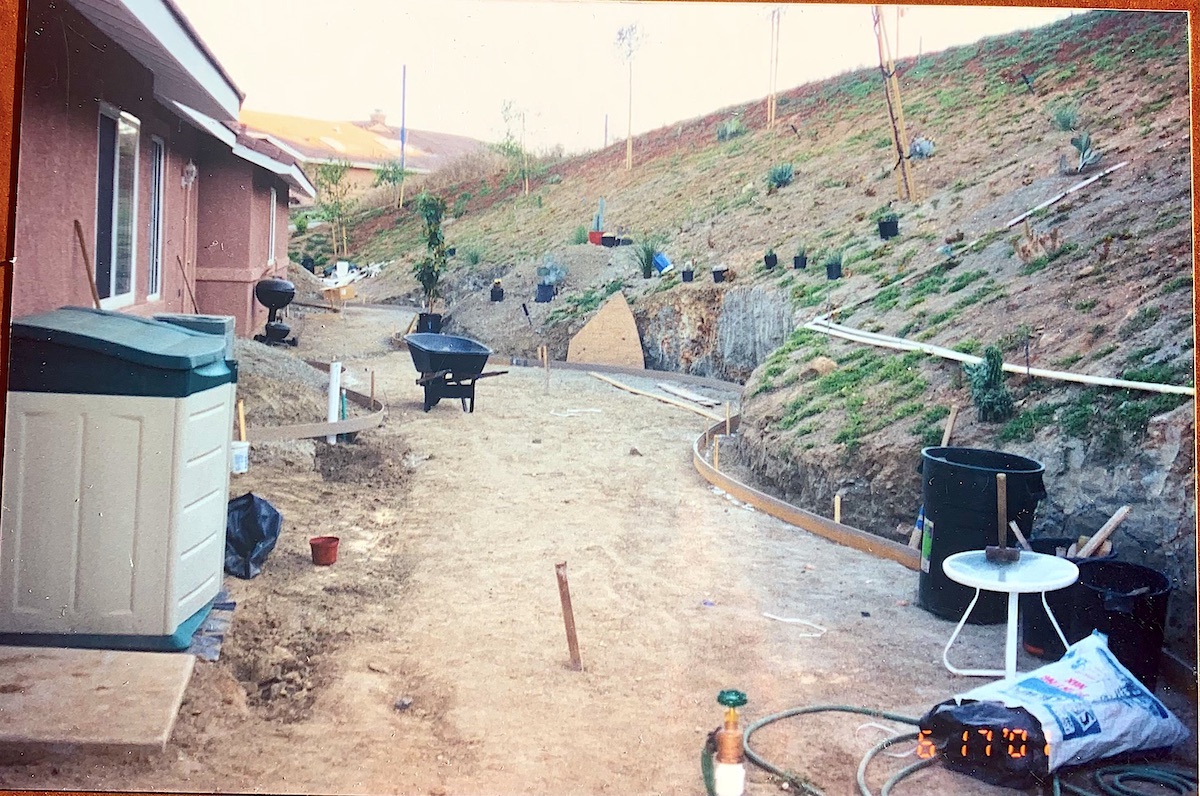
"Before" photo, Bernie and Linda Mases' slope
Two decades ago Bernie, now retired, sat behind his new house and pondered how to transform the immense slope into a practical, interesting garden. The area is 160 feet long, and ranges from 38 feet wide on the south end to 80 feet on the north. "I didn't want an ordinary bank," he says.
That's an understatement.
Clever erosion control
After adding serpentine retaining walls that range from 3 to 4-1/2 feet high, Bernie came up with an ingenious erosion solution: He wet and compacted the soil, then use the compactor to pound small pebbles into it. (He chose a polished river rock mix sold then as "Palo Verde.")
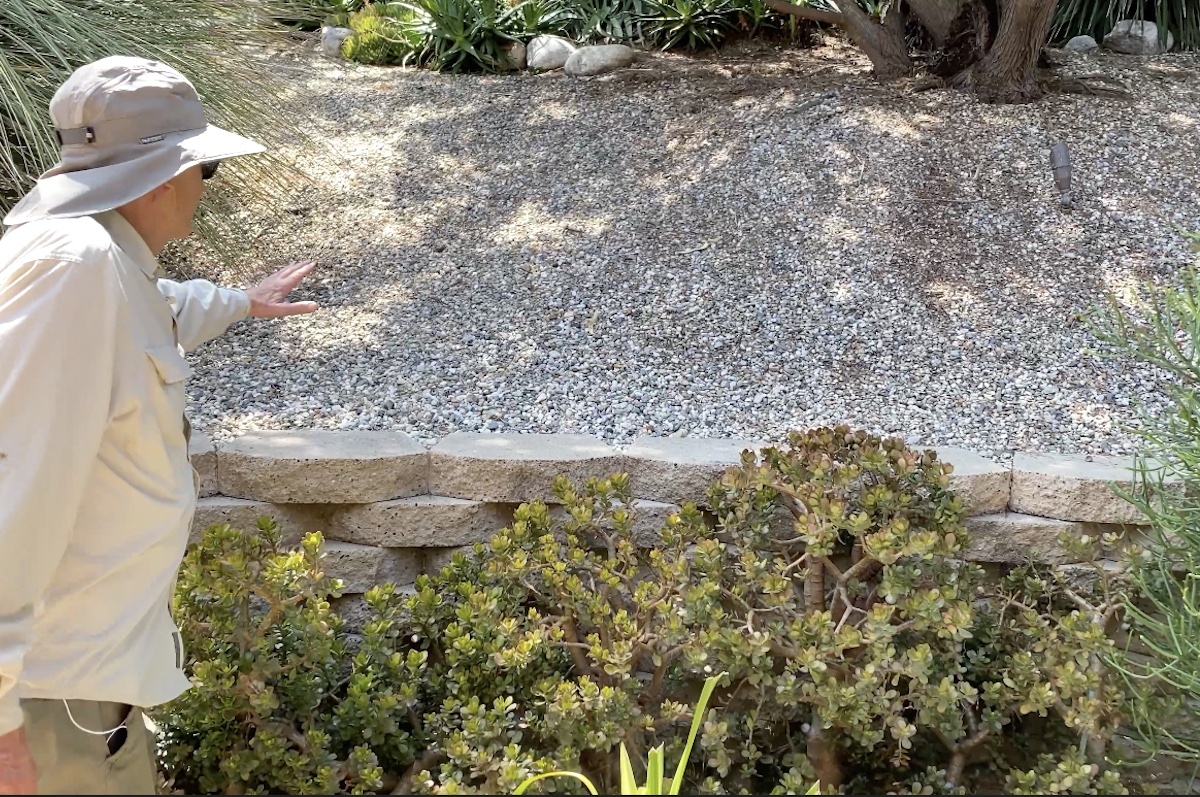
Bernie shows the bank's river-rock "crust"
This formed what he refers to as a "crust" that has stabilized the soil and prevented erosion for 22 years. For decorative purposes, it's also top-dressed with additional river rock.
About the irrigation
The video doesn't go into detail about the irrigation, but if you're doing something similar: Bernie used bubblers, which put water at a plant's roots, as opposed to sprayers that send it into the air. Nozzles of "stream bubblers" radiate water like the spokes of a wheel.
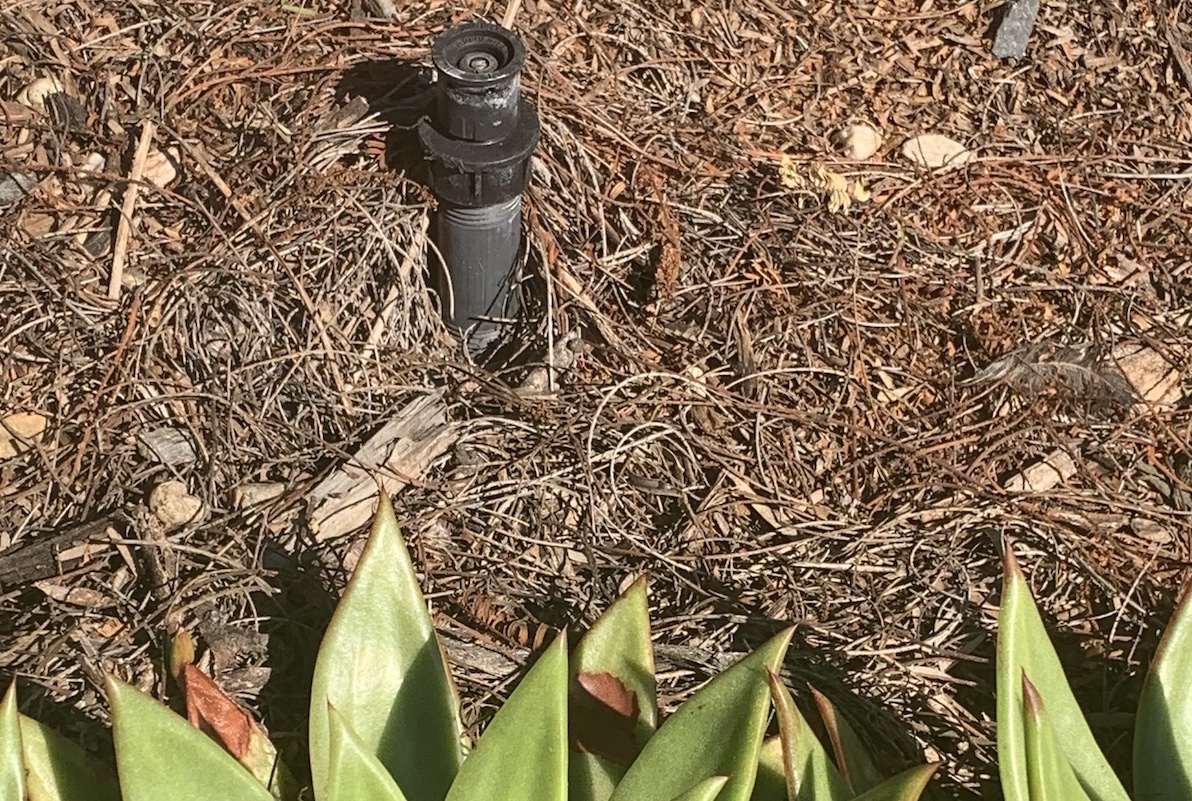
Rainbird bubbler
Bernie recommends "Rainbird's stream nozzle. It comes in 1/4, 1/2, and full. No clogging or maintenance. Easy adjustment on top of nozzle head after it's placed next to a plant. Easy to position and lasts 40+ years. It's not like a drip head that gets buried by mulch and is impossible to find."
Moreover, "roots may crimp flexible plastic drip tubing, leading to dead or dying plants over time. The stream spray system uses PVC pipe to each sprinkler's 6-inch riser."

Mases' garden, month-by-month water bill totals
Design and succulent selection
To give the slope a visually pleasing "flow," Bernie added horizontal swaths of rounded rocks heavy enough to anchor themselves (no compacting needed).
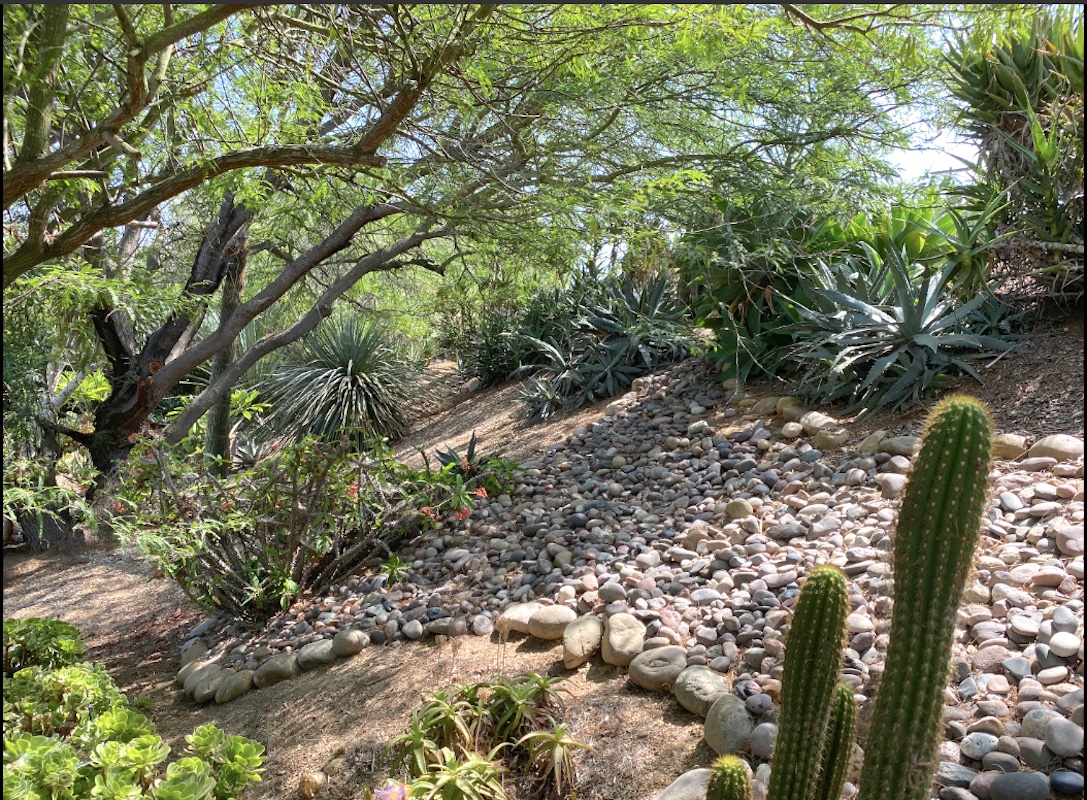
A swath of rounded stones enhance a steep bank
Low-water, easy-care succulents and lacy trees provide intriguing shapes and textures, and are enjoyable seen face-on or viewed from below. One example is star-shaped Agave lophantha 'Quadricolor', which fills blank spots with offsets, is striped green-and-yellow, and stays comparatively small.
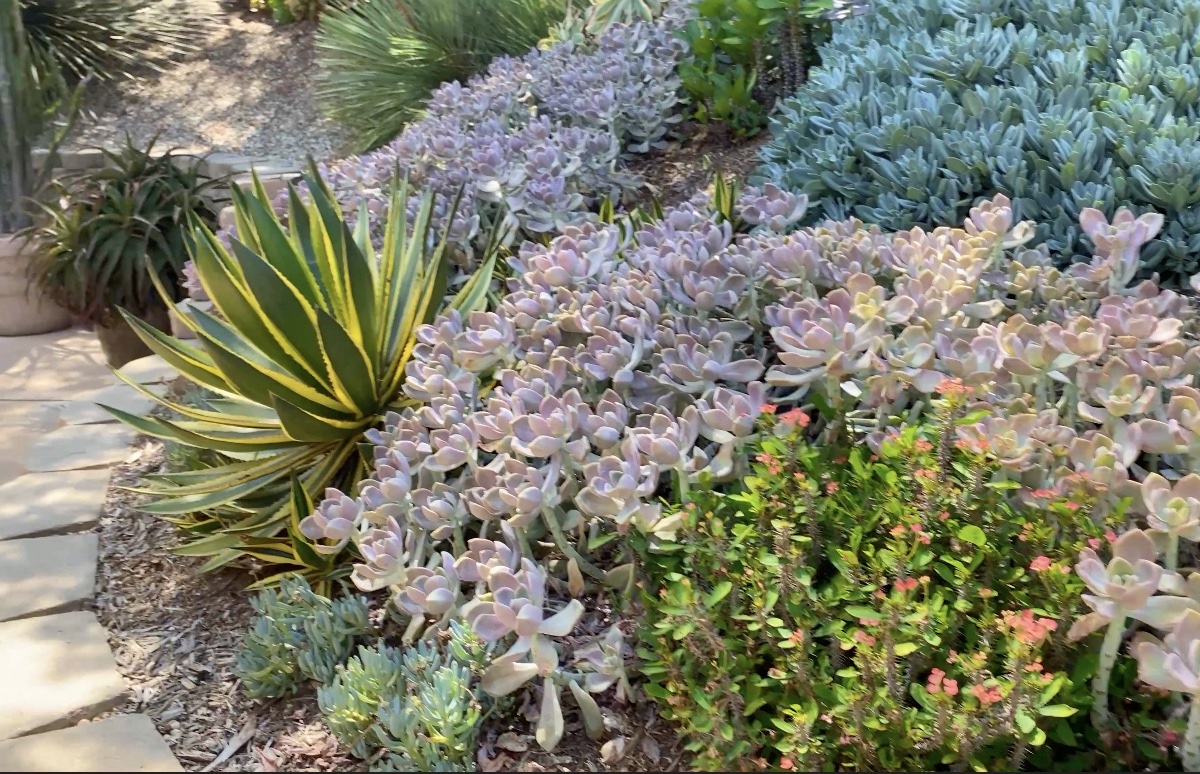
Mixed planting with Agave lophantha 'Quadricolor' at left, Graptopetalum 'Superbum' at middle and a dwarf Euphorbia milii at lower right.
When summer temps rise into the 90s, many soft-leaved ornamental succulents (like Linda's favorite, lavender Graptopetalum 'Superbum') need protection from searing sun. Bernie created an ideal microclimate for small ornamental plants and for the patio sitting area by planting Chilean mesquite trees (Prosopis chilensis) mid-slope.

Mesquite provides filtered shade for Agave americana 'Mediopicta Alba' and other succulents
These desert trees thrive closer to the coast if given excellent drainage and minimal water. Their roots help stabilize steep slopes by knitting together and going deep. When pruned, the trees have an airy above multiple trunks. Small leaves are feathery, and in spring the trees produce fluffy yellow flower sprays.
Where does runoff go?
Per Bernie: "There's a 3” French drain behind the retaining wall. Water from the bank and the home's roof flows directly into a main drain underground and then into concrete culverts below the property. All rain gutter downspouts connect to the drainage system. Only patio runoff ends up on the concrete pad. Drains on the pad collect any excess water during heavy rains."
50-mile view
The couple belong to the Palomar C&SS north of San Diego, and coincidentally from their home's front they can see Palomar mountain in the far distance. It's lovely in winter when the mountains are snow-capped, Linda says.
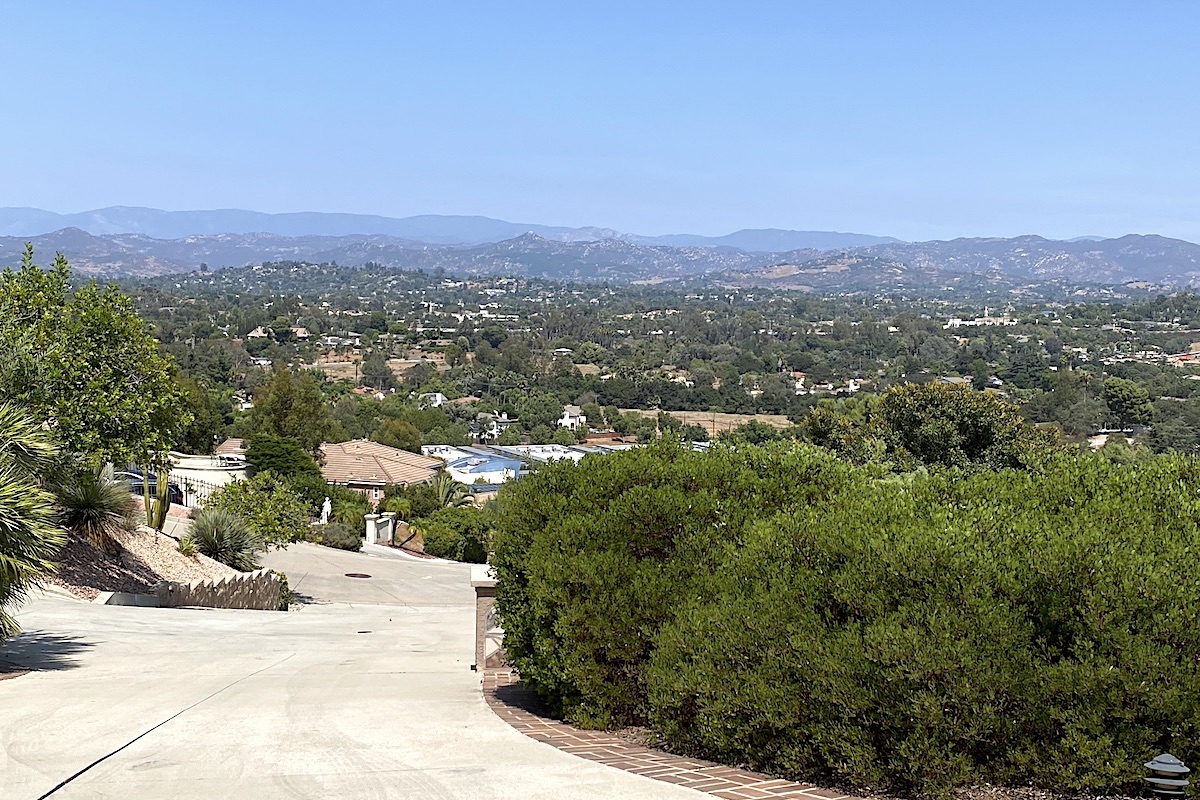
View of Escondido, CA from the Mases' driveway, looking northeast
The half-acre property has a 180-degree, 50-mile view to the northeast and southeast. It's tranquil despite the bustling city of Escondido spread out below---and beautiful at night. The only sound is the distant hum of Interstate 15.
Bernie and Linda are moving to Arizona for a new adventure and to be closer to grandchildren. Although matter-of-fact about it, he adds, "This place will be hard to leave."
Interested in the house?
The realtor with the listing is Cindy Waasdorp, Berkshire Hathaway, cwaasdorp@aolcom, (619) 987-1656. More info and virtual tour.
great plants in the garden
Related info on this site
Jim Bishop’s Steep, One-Acre Garden
Jim Bishop’s steep, one-acre terraced garden in San Diego is unlike any other, except perhaps Jardin Exotique d’Èze near Monaco, overlooking the Mediterranean. “But there, they have to dig basins into
Succulent Slope Before & After
See a problem-solving, terraced succulent garden landscaped on a budget. Challenges include hillside erosion, large area, and steep grade. Before-and-after photos, video and plant gallery.

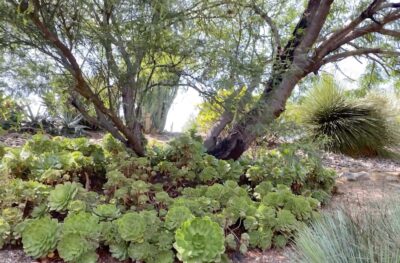
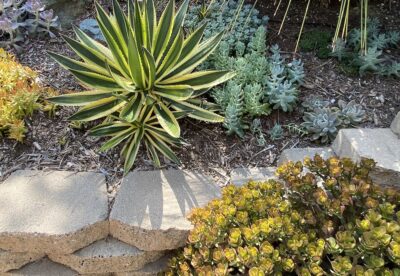
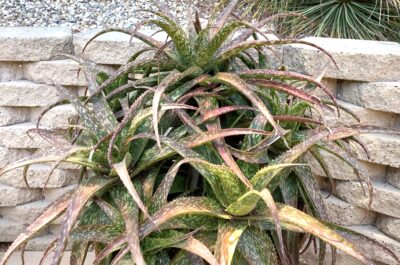
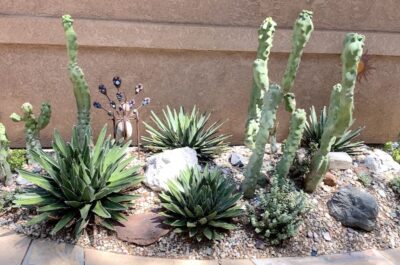
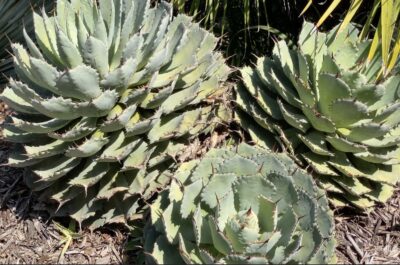
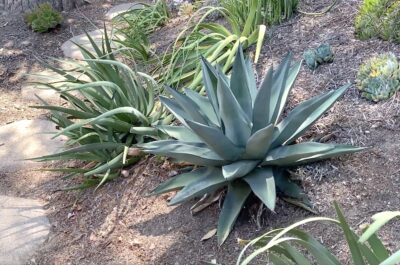
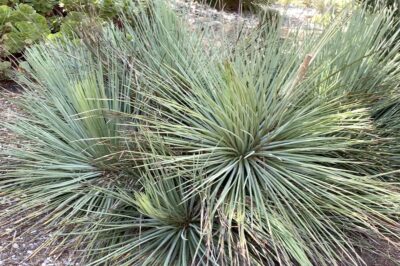
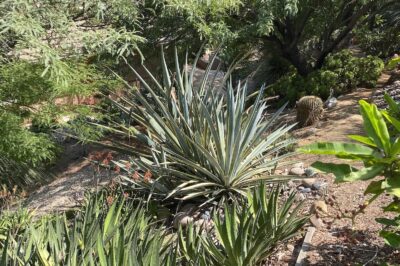

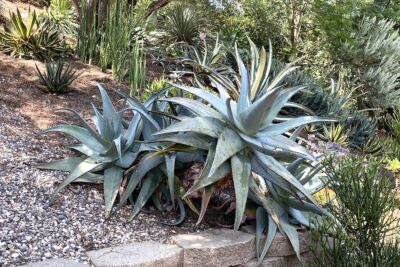
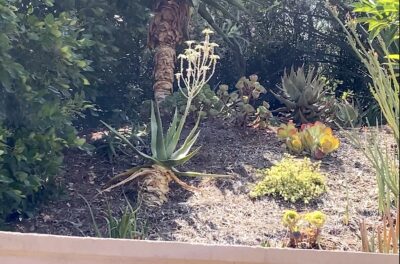
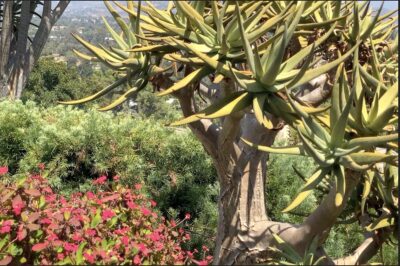
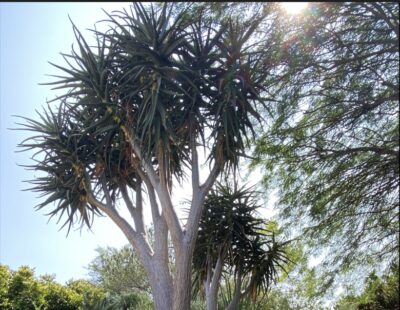

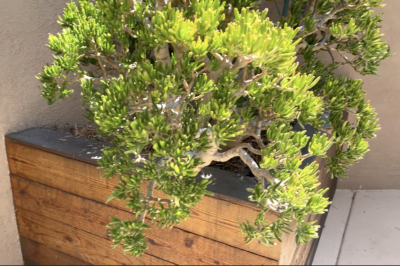
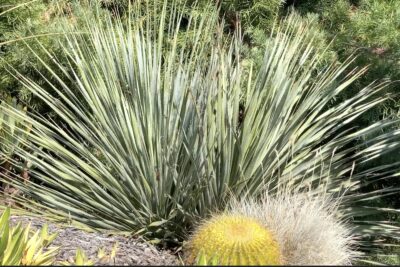

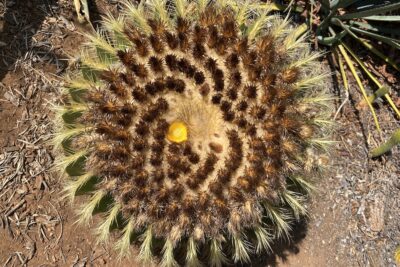
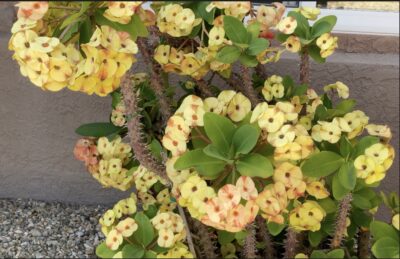
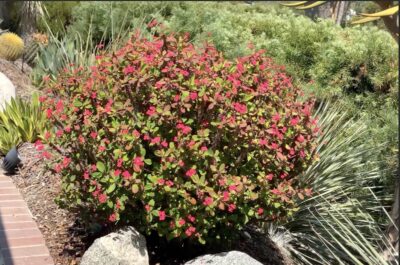
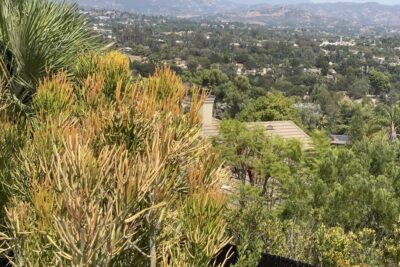


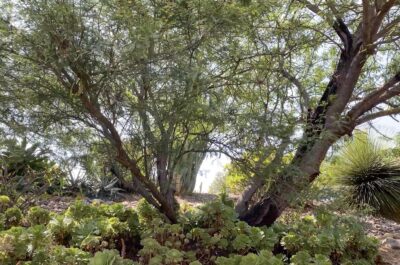
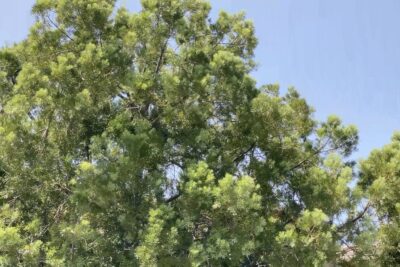

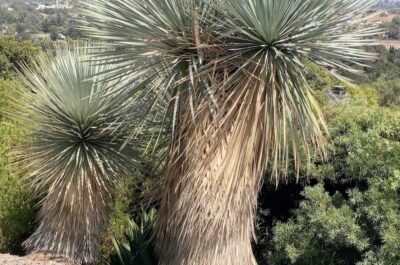
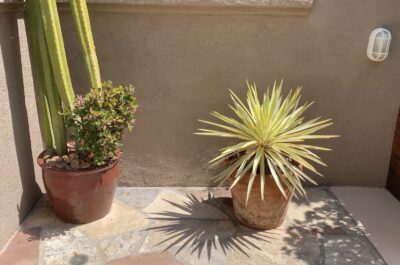
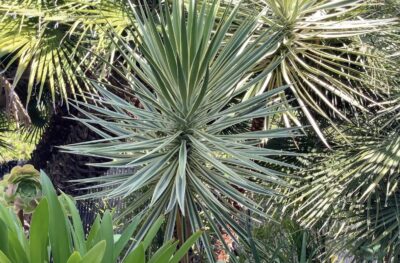

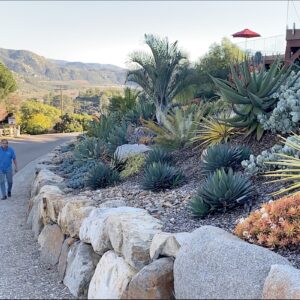
What a picture-perfect landscaping! I’m impressed with every aspect of it, but the measures taken for erosion control and water drainage are most impressive. If I could turn back the calendar on my own home landscaping project I would take guidance from this amazing work of landscape art. In particular, I would have provided some shade using tree aloes and maybe palo verde or mesquite. This would be to provide filtered sunlight for the echeverias I love to grow.
Hi Timothy — I’m so glad you enjoyed it! I have seven palo verde trees. They’re the cultivar ‘Desert Museum’, not the species that is messier and thorny. I don’t think tree aloes (unless large like Bernie’s) provide much shade, at least not the bright filtered shade that succulents love.
Hi Tim, nice to hear from you again! I’m glad you enjoyed it. Btw, I’ve pretty much given up on growing echeverias in the open garden. The ‘Sahara’ that were thriving below my Bailey’s acacia looked great until the tree (which, granted, is messy) dropped leaves, dried flowers and (later on) seed pods on them. Echies for me are purely pot plants, and the only thing that gets dropped on them is shade cloth!